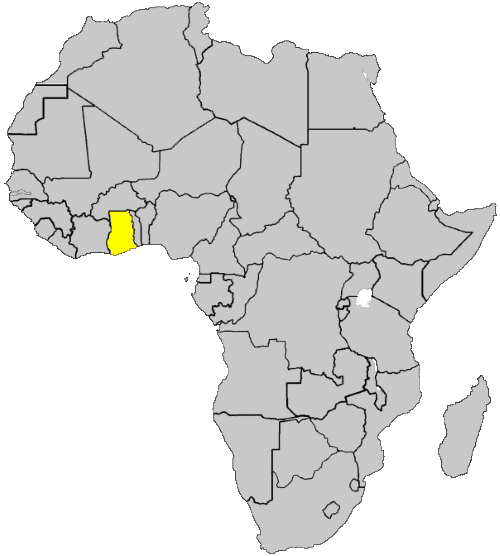


Ghana, a nation on West Africa’s Gulf of Guinea, is known for diverse wildlife, old forts and secluded beaches, such as at Busua. Coastal towns Elmina and Cape Coast contain posubans (native shrines), colonial buildings and castles-turned-museums that serve as testimonials to the slave trade. North of Cape Coast, vast Kakum National Park has a treetop-canopy walkway over the rainforest.
Languages: Asante 14.8%, Ewe 12.7%, Fante 9.9%, Boron (Brong) 4.6%, Dagomba 4.3%, Dangme 4.3%, Dagarte (Dagaba) 3.7%, Akyem 3.4%, Ga 3.4%, Akuapem 2.9%, other 36.1% (includes English(official))
Ethnic Groups: Akan 47.5%, Mole-Dagbon 16.6%, Ewe 13.9%, Ga-Dangme 7.4%, Gurma 5.7%, Guan 3.7%, Grusi 2.5%, Mande-Busanga 1.1%, other 1.6%
Belief Systems: Christian 68.8% (Pentecostal/Charismatic 24.1%, Protestant 18.6%, Catholic 15.1%, other 11%), Muslim 15.9%, traditional 8.5%, other 0.7%, none 6.1%
Demographics:
Population: 26.7 million people (World Rank: 48th) (2014 estimate)
Population Density: 304 people/mi^2 (People per Square Mile) (World Rank: 98th) (2014 estimate)
Population Growth: 2.29 %/yr (World Rank: 42nd) (2013 estimate)
Life Expectancy: 61.1 years (World Rank: 197th) (2013 estimate)
Median Age: 20.2 years (World Rank: 152nd) (2010 estimate)
Sites for More Information:
Map of Ghana
Worldatlas.com
Country Profile for Ghana
United Nations
Current News About Ghana
AllAfrica.com
Ghana - Facts and Information 1
United Nations Economic Commission for Africa
Ghana - Facts and Information 2
U.S. Library of Congress
Ghana - Facts and Information 3
Encyclopedia.com
Traveling to Ghana
Comprehensive travel information from africaguide.com
Language Resources:
Government Related:
Ghanaian Embassy
in Washington D.C.
Ghana Government Web Sites
by Gunnar Anzinger.

